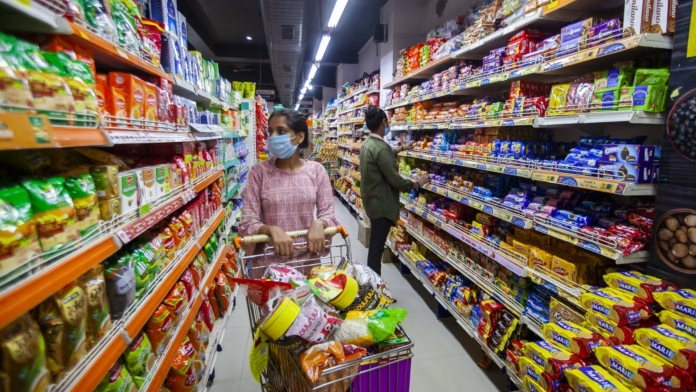Despite the easing of inflation, a majority of Indians still find high-priced large consumer product packs unaffordable.
According to data from the retail intelligence platform Bizom, sales growth in high-value packs within FMCG categories contracted in July compared to the previous year. With the festive season approaching, consumers opted for lower and mid-priced packs due to the larger pack prices exceeding their expectations.
“When the price of a pack rises above a certain psychological threshold – say a INR 100 pack becomes INR 110 – then it’s difficult to get consumers to purchase these packs. Moreover, e-commerce and quick commerce, where consumers make impulse purchases of small-and-mid-priced packs, continues to grow faster than modern trade where high-value packs are usually bought,” said Mayank Shah, senior category head at Parle Products.
He further mentioned that consumers accept reductions in product quantity because it doesn’t lead to additional expenses for them.
Within packaged foods, sales of high-value packs experienced a 1% decrease, whereas mid-and-low-priced packs exhibited a growth of 0.5%, as depicted in the graphic. In the confectionery segment, consumers transitioned to mid-priced packs, resulting in a growth of 4.6%, while high-value packs encountered a decline of 4.7%. Similarly, in branded commodities, the growth of both high-value and mid-priced packs slowed down, as consumers shifted towards smaller packs, which saw a growth of 4.7%.
During the past two years, as inflation surged, high-value packs bore the brunt of escalating costs, whereas for low-unit packs, where adjusting prices is more limited, companies turned to reducing product quantities.
“Shifting to small-or-mid-price packs pinches consumers less on their pocket,” said Shah, who added that getting volume growth back is a challenge.
Although companies have conveyed the advantages of reduced raw material costs to consumers by augmenting the quantity in lower and medium-priced packs and decreasing prices for high-value packs, consumers still perceive a psychological barrier to the pricing of the latter. Even though the cost pressures have diminished due to a decline in edible oil prices, Shah noted that the costs of wheat, a crucial ingredient in biscuit production, remain elevated.
Bikano director Manish Aggarwal said, “We are focusing more on low-price packs as they are the best-selling product range.”
The festive season is expected to boost sales. “We continue to see stronger traction of discretionary across urban whereas we see strong traction of home care products across rural. With beverages, we see the end of season and hence a drop in sales across both urban and rural markets as consumption shifts towards a higher share of smaller packs. With input prices continuing to go down, we expect the upcoming festival season to trigger higher consumption,” said Bizom’s chief of growth & insights Akshay D’Souza. The FMCG industry posted flat year-on-year sales growth in July.





